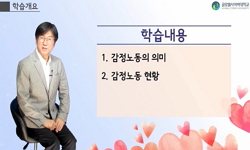본 연구는 현대조직유형의 "대표격인" 관료제에서 이성(합리성)과 감정(정서성)의 이원성과 감정에 관한 신화를 탐색, 해체해보는 것이다. 연구의 인식론적 관점은 포스트모더니즘에 기반하...
http://chineseinput.net/에서 pinyin(병음)방식으로 중국어를 변환할 수 있습니다.
변환된 중국어를 복사하여 사용하시면 됩니다.
- 中文 을 입력하시려면 zhongwen을 입력하시고 space를누르시면됩니다.
- 北京 을 입력하시려면 beijing을 입력하시고 space를 누르시면 됩니다.
관료제와 감정: 합리성/정서성의 이원구조 해체
한글로보기https://www.riss.kr/link?id=G3765133
- 저자
-
발행기관
-
-
발행연도
2008년
-
작성언어
Korean
-
주제어
관료제 ; Postmodernism ; Emotionality ; Rationality ; Bureaucracy ; Emotion ; 감정 ; 합리성 ; 포스트모더니즘
-
자료형태
한국연구재단(NRF)
-
0
상세조회 -
0
다운로드
부가정보
국문 초록 (Abstract)
이성과 합리성으로 대변되는 관료조직에서는 인간의 비합리적이고 감정적인 측면을 경시하여 왔다. 조직의 실생활에서처럼 대부분의 조직이론에서도 감정에 대한 탐구는 대부분 강조되지 않았거나 무시되어왔다.
연구결과, 관료조직에서 감정의 부정적 귀결은 불가피하고, 이는 근본적으로 다음과 같은 두 가지 점에서 비롯된다.
첫째는 서구문화에서 감정의 사용을 둘러싸고 있는 이원성으로부터 나온다. 서구사회에서 합리적인 것은 위이고 감정적인 것은 아래이다. 이러한 이원성 체계에 뿌리를 두고, 합리성은 긍정적으로 포장되고 있는 반면, 정서성은 부정적으로 간주된다. 관료조직에서 감정은 항상 평가 절하되고 무시된다. 반면, 합리성은 효과적인 조직생활을 위한 이상으로써 특권을 얻는 것이다.
둘째로 지적할 점은 감정에 대한 신화이다. 비록 서구전통의 표상인 관료제가 합리성에 특권을 주고 있다고 하더라도, 감정도 필수적인 관계욕구를 충족시킨다. 감정은 창의성과 사기를 진작시키고 인간의 정신적인 발전을 위해 그 토대를 형성시켜준다. 그러나 진실성과 무관하게 "합리적 결정은 과학적이며 결과적으로 타당하다"라든가 "중요한 일에 감정이 개입되어서는 안된다"는 신화가 창조되어온 것이다.
결론적으로 말해, 감정과 이성, 정서성과 합리성의 이원대립구도에 대한 "의심 없는" 믿음을 가지고 있었지만, 감정이 일어나는 것 자체가 이성에 달려 있다는 점을 상기해야한다. 감정은 성에 의존하며, 그 둘을 분리시키는 것은 불가능하다. 감정논리에 대한 이해가 필요하다.
본 연구는 현대조직유형의 "대표격인" 관료제에서 이성(합리성)과 감정(정서성)의 이원성과 감정에 관한 신화를 탐색, 해체해보는 것이다. 연구의 인식론적 관점은 포스트모더니즘에 기반하며, 분석전략으로서 데리다의 해체개념을 사용한다.
이성과 합리성으로 대변되는 관료조직에서는 인간의 비합리적이고 감정적인 측면을 경시하여 왔다. 조직의 실생활에서처럼 대부분의 조직이론에서도 감정에 대한 탐구는 대부분 강조되지 않았거나 무시되어왔다.
연구결과, 관료조직에서 감정의 부정적 귀결은 불가피하고, 이는 근본적으로 다음과 같은 두 가지 점에서 비롯된다.
첫째는 서구문화에서 감정의 사용을 둘러싸고 있는 이원성으로부터 나온다. 서구사회에서 합리적인 것은 위이고 감정적인 것은 아래이다. 이러한 이원성 체계에 뿌리를 두고, 합리성은 긍정적으로 포장되고 있는 반면, 정서성은 부정적으로 간주된다. 관료조직에서 감정은 항상 평가 절하되고 무시된다. 반면, 합리성은 효과적인 조직생활을 위한 이상으로써 특권을 얻는 것이다.
둘째로 지적할 점은 감정에 대한 신화이다. 비록 서구전통의 표상인 관료제가 합리성에 특권을 주고 있다고 하더라도, 감정도 필수적인 관계욕구를 충족시킨다. 감정은 창의성과 사기를 진작시키고 인간의 정신적인 발전을 위해 그 토대를 형성시켜준다. 그러나 진실성과 무관하게 "합리적 결정은 과학적이며 결과적으로 타당하다"라든가 "중요한 일에 감정이 개입되어서는 안된다"는 신화가 창조되어온 것이다.
결론적으로 말해, 감정과 이성, 정서성과 합리성의 이원대립구도에 대한 "의심 없는" 믿음을 가지고 있었지만, 감정이 일어나는 것 자체가 이성에 달려 있다는 점을 상기해야한다. 감정은 성에 의존하며, 그 둘을 분리시키는 것은 불가능하다. 감정논리에 대한 이해가 필요하다.
다국어 초록 (Multilingual Abstract)
The emotional and irrational aspect of humanity has in practice been neglected in bureaucracy which is dominated by a spirit of formalistic impersonality and instrumental rationality. And also, the study of emotions has been underestimated and largely ignored by the rationalism of organizational researchers.
The alienation and inferiority of the concept of emotion is, however, fundamentally caused by rationality/emotionality dichotomy and myths of emotions in workplace. This dichotomy is a false distinction and an ideological assumption, rather than a social fact. In conclusion, we need to recognize critically the reason and rationality underlying emotions and to understand logic of emotions.
This study is to explain the dualism between rationality and emotionality and to explore some of myths associated with employee emotions in bureaucratic organizations. To do this, Derrida's concept of deconstruction is used as the analytical strategy,...
This study is to explain the dualism between rationality and emotionality and to explore some of myths associated with employee emotions in bureaucratic organizations. To do this, Derrida's concept of deconstruction is used as the analytical strategy, standing on the view of the postmodernism.
The emotional and irrational aspect of humanity has in practice been neglected in bureaucracy which is dominated by a spirit of formalistic impersonality and instrumental rationality. And also, the study of emotions has been underestimated and largely ignored by the rationalism of organizational researchers.
The alienation and inferiority of the concept of emotion is, however, fundamentally caused by rationality/emotionality dichotomy and myths of emotions in workplace. This dichotomy is a false distinction and an ideological assumption, rather than a social fact. In conclusion, we need to recognize critically the reason and rationality underlying emotions and to understand logic of emotions.











